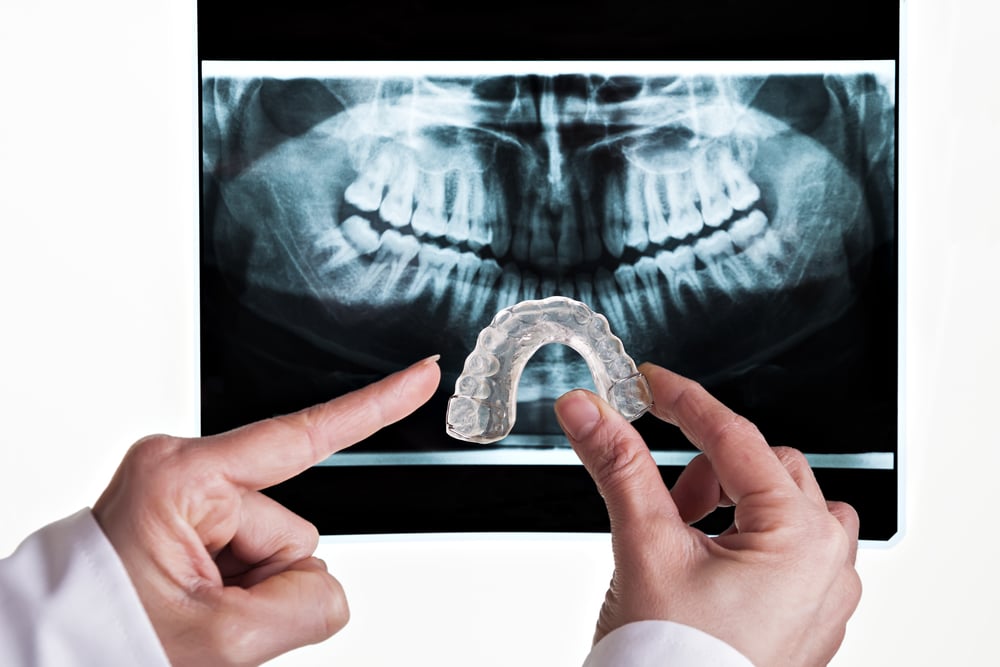Downtown Dental Excellence offers Night Guards for TMJ/TMD & Bruxism in Cleveland, TX
If you find that you often wake up with jaw pain, a headache or other painful or annoying symptoms, you may have an oral health ailment that can eventually cause serious damage to not only the jawbone, but also the teeth and even your hearing! In order to treat what is causing you to wake up in pain, it is important to understand what the root cause may be. Generally, jaw pain, headaches and other symptoms in the morning are caused by TMJ/TMD or bruxism.
What Is a Night Guard?
A night guard is a dental appliance that is placed in the mouth at night while a patient is sleeping. These custom mouth guards are specifically designed to stop damage caused by the grinding or clenching of the teeth at night.

What is TMJ/TMD?
TMJ stands for “Temporomandibular Joint Disorder,” which is when the area where your lower jaw is connected to your skull becomes inflamed or injured. TMD is essentially the same, and stands for “Temporomandibular Disorder.” This disorder can be extremely painful, and can lead to a variety of health issues that include:
- Swelling
- Lockjaw
- Trouble Chewing
- Pain in the Face, Neck, Jaw and/or Shoulders
- Jaw Fatigue
There are a few different reasons that a patient may be suffering from TMJ/TMD, which include:
- The Cushioning Disc of the Joint Being Dislocated
- Bruxism
- Arthritis
- Injury
If you have any of the above symptoms, it is extremely important to see a dentist as soon as possible. This will help to ensure your ongoing oral health.
What is Bruxism?
Bruxism is the medical term for clenching or grinding your teeth at night. This can be a difficult issue to diagnose, as patients can’t actually hear themselves grinding their teeth. Often times, though, a spouse may complain about the teeth grinding. If you don’t sleep with a spouse, you may need to look for other signs of bruxism, such as:
- Jaw Pain
- Headaches
- Worn Teeth
- Hearing Loss
- Loose or Fractures Teeth
- TMJ/TMD
In order to treat the symptoms of bruxism, a night guard may be the best option. Still, the root cause of the bruxism should also be addressed. While you may not know initially what is causing the bruxism, there are a few changes that you can make to see if you can make the bruxism stop on your own. These include:
- Cutting down on caffeine and not drinking it near bedtime.
- Avoiding chewing on non-food items.
- Utilizing different jaw relaxation techniques.
- Cutting back on alcohol, especially late at night.
- Reducing stress.
Even though patients can work towards solving the root causes of bruxism, it is still important to make sure that you are not doing more damage to your teeth and jaws while you try to uncover the reason behind your bruxism. In order to stop any further damage from occurring, you’ll want to see your dentist so they can provide you with a night guard to keep your jaw and teeth safe.
